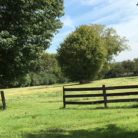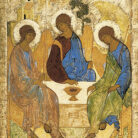It’s been a while since I have written a full-on blog. MondayMatters and Facebook posts have taken the place of my writing. I need to do better. Not because I have such important things to say but because I need the discipline and the release of writing. I think I will.
Most of my blogs are what I would call “stream of consciousness,” I just start writing from something that is on my mind and see where it ends up. I usually say I am as surprised as anyone by the last line of my blog. On this day, July 3, there is generally one predominant thought, the speed of change.
It was 49 years ago today (speaking of speed) that I was introduced to the concept is rapid, irreversible, unimaginable life change. Many of you know the story. I was canoeing with friends on the Duck River in south-central Tennessee. I have always remembered that day as one of the most amazingly beautiful and perfect days I have ever experienced. The cloud was as clear blue as a Monet painting, accented by just the right amount of cotton-ball clouds. The temperature was exactly perfect, far cooler and nicer than you would expect for a Tennesse July day. Friends were incredible, laughter echoed from the limestone cliffs that line that part of the Duck, water gorgeous, canoe slipping along effortlessly. Well, you get the picture.
We finished the float mid-afternoon and pulled into the canoe livery near Columbia, Tennessee. As we were pulling in the canoe a Tennessee Highway Patrolman pulled up, got out of his car, and asked for me by name. (Not a good sign.) He asked me to get in his car and took me to a small country store that had a telephone. This was long before cell phones or even pagers. With almost no information, the THP officer said I needed to call home. I can close my eyes and even after 49 years, remember the smell of the country store, the solemn look of the patrolman, and hear the timbre of the voice that answered my call. It was not my family but instead a pastor friend of my father. “Mike,” he said, “there has been an accident. Charlotta was hit head-on in Nashville this morning.” There seemed like a inordinately long pause so I asked, “How bad is it?” To which he replied with the most gut-punching two words I will ever hear, “She’s gone.”
Charlotta was the oldest of my three younger sisters. They were stair-stepped about three years apart starting three years under me. All blonde-headed. All quick to smile and attract people. All named by my mom names that started with C-H but sounded like SH, Charlotta, Chonda, Cheralyn. I think Mom did that just to give 2nd-grade teachers a fit. Charlotta was the oldest of the girls, 21 at the time, a gifted pianist, the leader of a community youth choir in the little town of Ashland City. And, had only over the last year or two, become my best friend. She had followed me to Trevecca and there our relationship dramatically changed.
“She’s gone,” and incredibly beautiful Tennessee afternoon changed to darkest day of my life. Although there have, of course, been many other dark days, because that is just the way of things, there has never been one darker or more pregnant with catastrophic life-change than that day, July 3, 1976. That change was the catalyst for a series of life events that would change the course of our lives as a family and my life as an individual. My parents divorced soon after, in part as a result of the emotional devastation of Sis’s death. Less than two years later, Cheralyn, the baby, died from leukemia at 15. Life changed with a phone call, the screeching of brakes, a rainstorm on a Nashville road, a last goodbye.
It’s been nearly 50 years. Much of, most of the emotion and sadness of that change is gone. In fact, even as I write this, I am aware of a sweetness recalling the kindness of friends, the songs at the funeral, the heart-shaped gravestone. I am also aware that nearly everything good that has happened in my life over the last fifty years is directly attributable to that day, that event. Doris came into my life through that story. Nearly 50 years of some kind of ministry came out of that. Josh and Jacob, born to Doris and me, and the four unbelievable grandsons they have given us, none of that happens without this “prime mover.” So, for all of the heartache and heartbreak that surrounded that July 3 day, there is also a ton of thankfulness, praise, and profound gratitude. There is a clearer understanding of Romans 8:28 than would otherwise have been possible. “And we know that in all things God works for the good of those who love Him, who have been called according to His purpose.”
So where does my “stream of consciousness” take me today? These three thoughts.
- Change happens. It just does. It is as much a part of the DNA of life and birthing, breathing, and being. If you exist you will experience change. Sometimes it will come out of beautiful, azure days. Sometimes it will come in the midnight hour. But it will come. Accept that fact.
- Life unfolds. When the change first comes, I can’t tell you if it’s good or bad, happy or sad. I really don’t even know for sure the depth of change, the gravity of the event, until time passes, often, a lot of time. I accept the change. Grieve the loss that may be attached to it. And then turn my face to the future to see where it will lead me.
- Finally this, God’s good. That is the constant. Everything else changes. That does not. It is not always easy to see at first. It is sometimes even harder to believe. But the thing that 49 years does is put it in perspective. He is at work. He is not surprised by the change. And He will make things good. The sooner I get back to that, the easier it is for me to accept the change.
Tomorrow we will celebrate our nation. We will shoot firecrackers (or at least watch other people shoot them.) We will eat hot dogs and hamburgers and maybe play croquet. And we will also, perhaps in ways we won’t see for quite some time, change. I pray that you quickly see the goodness of God in that.
Note: Speaking of change. this is the last blog I will write on this BranchesBlog site. I will find a way to keep writing and I will find a way to post nearly 20 years of writings for any who want to look back. But the website is no longer practical or functional. Thank you for being a part of these many years of “stream of consciousness” moments, and for being a huge part of the good that has come out of the changes in my life.









